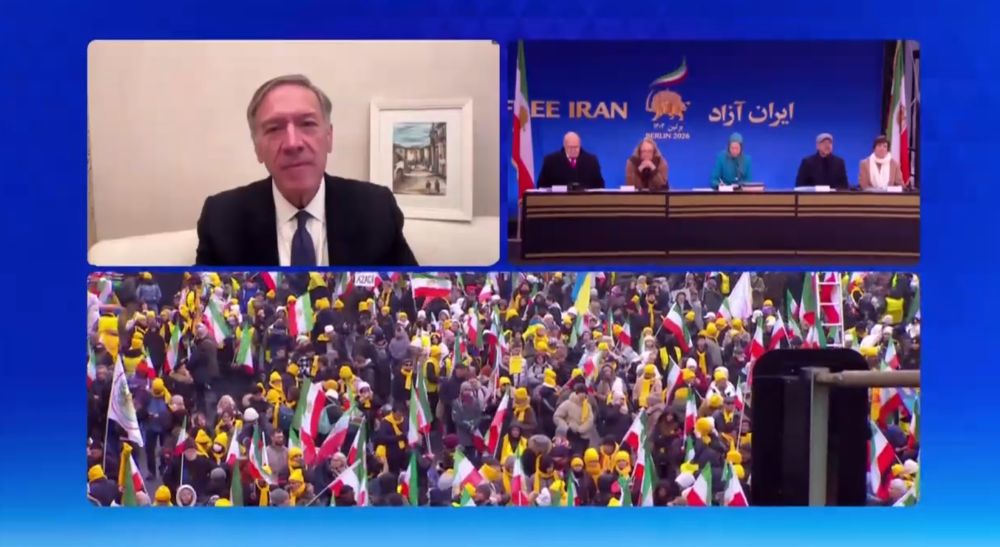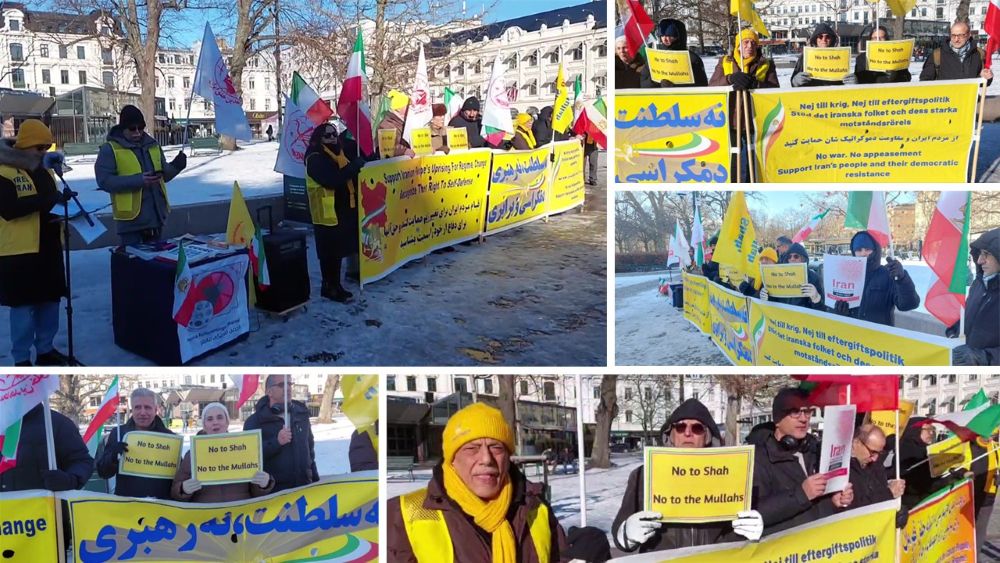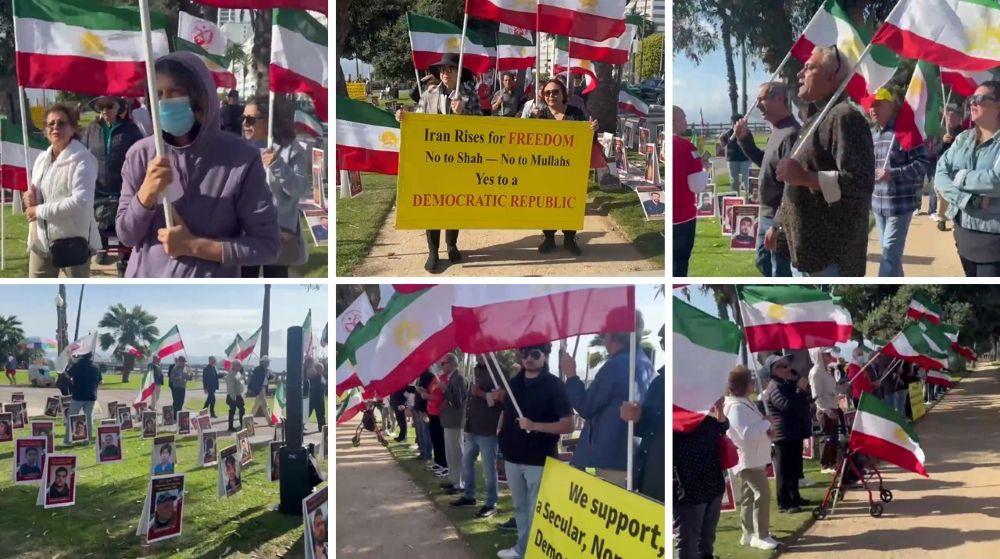Amb. Robert Joseph, former Undersecretary of State for Arms Control and International Security addressed a webinar on October 22, 2020, over the Iranian regime’s terrorism in Europe.
Also, a group of European and US personalities, lawyers and experts joined the online event hosted by the National Council of Resistance of Iran (NCRI) on October 22. They condemned the Mullahs’ regime’s terrorism campaign in the Europe and called on the EU to pursue a firm policy against the Iran’s regime.
Participants condemned the regime’s support for terrorism around the world and called on the EU to end the appeasement policy under the pretext of engagement with the mullahs. It is time to make it clear to the mullahs’ regime that their support for terrorism in Europe soil and across the world will not be tolerated.
Mrs. Maryam Rajavi, the President-elect of the National Council of Resistance of Iran(NCRI), was the keynote speaker at this event. Her message welcomed as a democratic solution to Iran’s future.
Amb. Robert Joseph, former Undersecretary of State for Arms Control and International Security
Appreciate the opportunity to participate in this important event. I’ve been asked on a number of occasions, but I decided to join the case as a civil party.
Part of my response is that I was in tendance at the rally, a peaceful, even joyous gathering, bringing together tens of thousands of participants, who seek a democratic and free Iran, who seek basic respect for human rights, and who seek an end to the religious dictatorship that has committed mass murder of its own citizens, true crimes against humanity.
Given that the intended target of the attack was Mrs. Rajavi, the leader of the democratic opposition, I could well have been one of the victims as I was seated only a few yards from her. But I think, beyond the personal dimension and even more important than the personal dimension, I believe as a matter of principle, it is incumbent upon all of us, individuals and governments, to stand up against terrorism in any form.
If we fail to stand up against the evil that is terrorism, if we seek to appease those who would commit such heinous crimes, we would only encourage more attacks, more crimes, and we would become complicit in that evil. The planned bombing, one that could have been the most massive terrorist attack in Europe today, is not an isolated case or an action of rogue agents. As others have said, it is part of an orchestrated campaign directed at the highest levels of government in Tehran. Since its foundation, the regime has used terrorist acts, directly and through proxies, against its adversaries, foreign and domestic.
This continues today. In Europe alone, in the past few years, Iranian agents have operated and planned lethal attacks across the continent in Albania, Austria, the Netherlands, Denmark, Germany, Switzerland, Italy, and I could go on. In the current case, the terrorist diplomat, and again I pause every time I use those two words together, the terrorist diplomat was caught red-handed, arrested as he was giving a powerful explosive to his accomplices, as others have said, an explosive that could have caused large scale damage.
Far from expressing concern or remorse about the likely loss of hundreds of lives, the only response from the jailed agent who has been masquerading as a diplomat, assigned to Iran’s embassy in Vienna, has been to threaten more deaths if he is convicted. Truly, this is an evil regime with no regard for how many innocent people it might murder.
So, what is this planned terrorist attack tell us about the regime? First, this is a cynical, desperate regime resorting to acts of mass murder of its domestic opposition, more recently, killing thousands of protesters in the streets across Iran, aligning with the Assad regime against the people of Syria, committing armed attacks against its neighbors in the Gulf. All of these actions reveal the fundamental desperation of the regime.
The planned bombing in Paris is just one more act of desperation. Second, this is not a regime with whom we can do business to borrow the Cold War phrase. The regime is not going to become more moderate or become a responsible stakeholder that respects the norms of a rule-based international order. Third, and perhaps most fundamental in terms of understanding the regimes’ desperation, this is a regime that has lost all legitimacy with its own people.
In fact, the Iranian people are now the greatest threat to the regime. The recent Amnesty International Report, which was punctuated by the tragic and despicable hanging of Navid Afkari, champion wrestler, who was falsely accused and coerced, demonstrates for the world to see the atrocities of the regime, its barbaric torture, and the flagrant murder of those who seek a free Iran. Hoping again and again for the leadership to become more moderate is sheer fantasy. This is a regime that survives only through brutal repression and this will not change no matter how much we may hope for it to change.
Finally, what policies conclusions should we draw? First, as a matter of both policy and principle, we must support democracy and human rights. Expressions of support from heads of state and government leaders for those inside Iran seeking democracy are vital as they uphold the importance of human rights as a principle of the international order and add to the pressure on the regime.
Second, we must support the democratic opposition inside and outside of Iran. We know that regime change must and will come from within. While the Iranian officials and their apologists consistently spin the line, that the current regime is the only alternative to chaos in a failed state, the 10-point plan of the NCRI calling for democracy, respect for human rights, a free and non-nuclear Iran, provides a pathway for the future and an insurance policy against a failed state outcome.
Third, and perhaps most timely, we must not throw the regime a lifeline that will only prolong the regimes’ terrorism, its regional aggression, and the specter of a nuclear breakout. We must not return to the failed policies of appeasement, a path that is often characterized as a choice of diplomacy over war, but this was and remains a false choice. We know that negotiations did not lead to a more moderate Iran.
In fact, the regime took the billions of dollars it gained from the JCPOA and what wasn’t siphoned off through corruption was used to fund foreign aggression, internal repression and terrorist acts, such as we saw in the planned bombing in Paris. The central problem is not the absence of negotiations or the absence of a particular agreement. More agreements will only lead to more aggression and more brutality. The central problem is the regime itself. The parallels to the situation in Europe in the 1930s, at least to me, are striking. Let me stop there. Thank you again.



